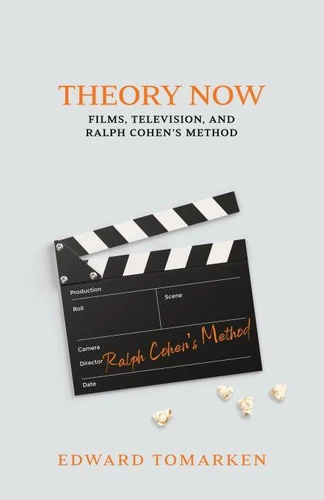Theory Now: Films, Television, and Ralph Cohen’s Method
Par :Formats :
Disponible dans votre compte client Decitre ou Furet du Nord dès validation de votre commande. Le format ePub est :
- Compatible avec une lecture sur My Vivlio (smartphone, tablette, ordinateur)
- Compatible avec une lecture sur liseuses Vivlio
- Pour les liseuses autres que Vivlio, vous devez utiliser le logiciel Adobe Digital Edition. Non compatible avec la lecture sur les liseuses Kindle, Remarkable et Sony
 , qui est-ce ?
, qui est-ce ?Notre partenaire de plateforme de lecture numérique où vous retrouverez l'ensemble de vos ebooks gratuitement
Pour en savoir plus sur nos ebooks, consultez notre aide en ligne ici
- FormatePub
- ISBN978-1-912335-26-8
- EAN9781912335268
- Date de parution21/12/2020
- Protection num.pas de protection
- Infos supplémentairesepub
- ÉditeurAmolibros
Résumé
Ralph Cohen founded New Literary History in 1969 and remained its editor until 2012, when it was widely seen as one of the major journals of literary theory. Cohen's generic method can help us understand many forms of artistic endeavour, from poetry and fiction to films and television series. In Theory Now, Edward Tomarken, a former student of Ralph Cohen, presents the rudiments of Cohen's method by using popular movies and television programmes to illustrate and explain theory essays of the past twenty years.
Avoiding the jargon associated with the discipline, Tomarken uses the language of the general reader. The present book is intended both for undergraduates and for anyone interested in film and television. It combines close analysis of the chosen artistic works with a lifetime's experience of the innovative and ground-breaking insights of Ralph Cohen. The final aim of the study is to show that literary and artistic knowledge is not different from any other form of knowledge and that therefore aesthetic comprehension applies to all aspects of human culture.
Avoiding the jargon associated with the discipline, Tomarken uses the language of the general reader. The present book is intended both for undergraduates and for anyone interested in film and television. It combines close analysis of the chosen artistic works with a lifetime's experience of the innovative and ground-breaking insights of Ralph Cohen. The final aim of the study is to show that literary and artistic knowledge is not different from any other form of knowledge and that therefore aesthetic comprehension applies to all aspects of human culture.
Ralph Cohen founded New Literary History in 1969 and remained its editor until 2012, when it was widely seen as one of the major journals of literary theory. Cohen's generic method can help us understand many forms of artistic endeavour, from poetry and fiction to films and television series. In Theory Now, Edward Tomarken, a former student of Ralph Cohen, presents the rudiments of Cohen's method by using popular movies and television programmes to illustrate and explain theory essays of the past twenty years.
Avoiding the jargon associated with the discipline, Tomarken uses the language of the general reader. The present book is intended both for undergraduates and for anyone interested in film and television. It combines close analysis of the chosen artistic works with a lifetime's experience of the innovative and ground-breaking insights of Ralph Cohen. The final aim of the study is to show that literary and artistic knowledge is not different from any other form of knowledge and that therefore aesthetic comprehension applies to all aspects of human culture.
Avoiding the jargon associated with the discipline, Tomarken uses the language of the general reader. The present book is intended both for undergraduates and for anyone interested in film and television. It combines close analysis of the chosen artistic works with a lifetime's experience of the innovative and ground-breaking insights of Ralph Cohen. The final aim of the study is to show that literary and artistic knowledge is not different from any other form of knowledge and that therefore aesthetic comprehension applies to all aspects of human culture.



